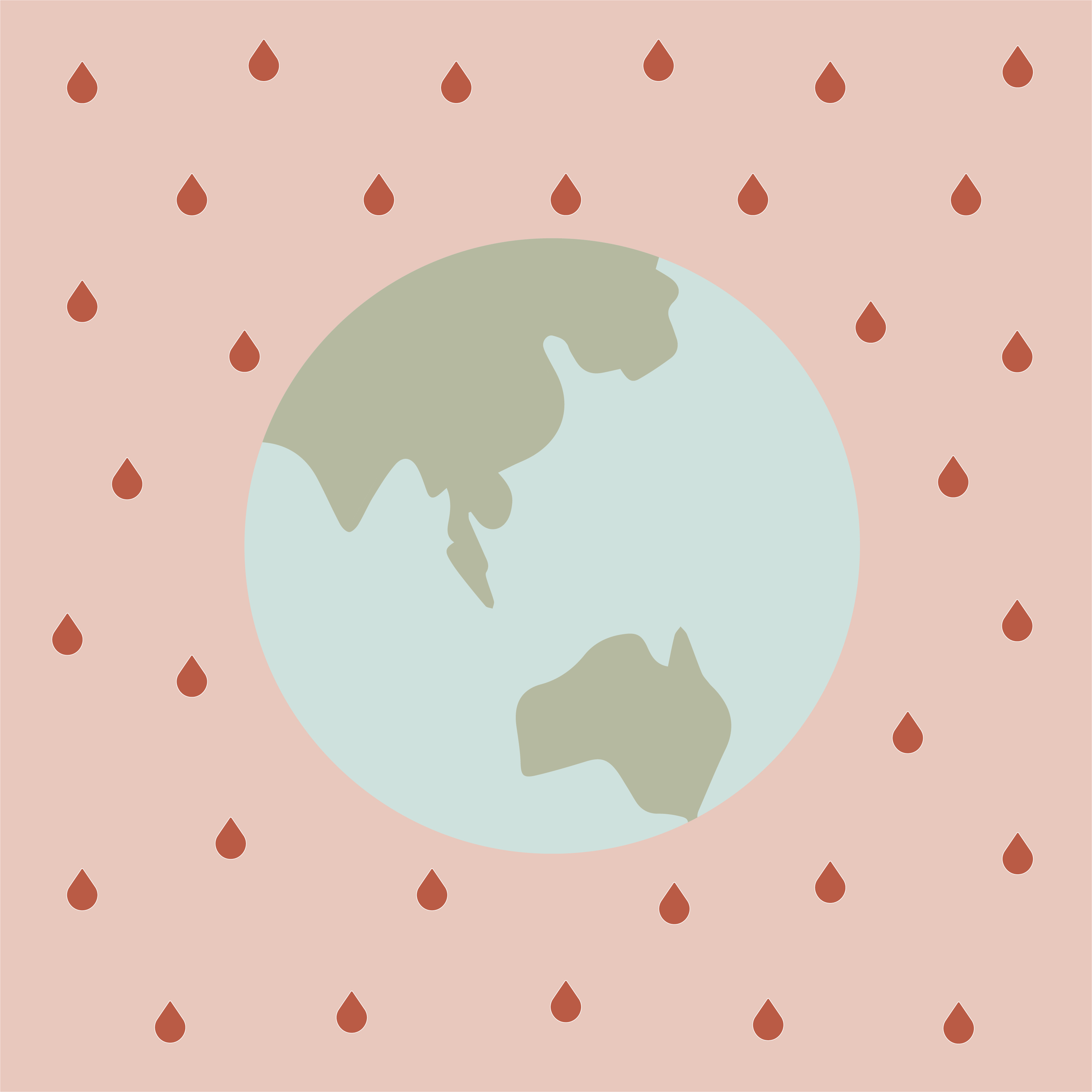Jun 02, 2017
8 WAYS TO KILL MYTHS ABOUT ORGANICS
You hear them at the dinner table, at the party and in the lunch room.
Claims about organic food that don’t seem completely right. The problem is that you just don’t quite know how to answer. Here you go, here are your arguments.
This blog is inspired by Swedish health and wellness site Naturskyddsforeningen.
Image: Mossy Willow Farm
Your friend: What do you mean organic wine from Chile, how organic is it with something imported from the other side of the world?
You: Organic has nothing to do with transport. That the wine is organic just means that the grape-farmers don’t have to get brain tumours from pesticides that have been used on the fields. Or that the leftovers from the same pesticides are still in your wine because it’s been so heavily sprayed. Also, it’s not the shipping that affects the environment when it comes to what we eat and drink. It’s how it’s been produced, so organic is super important even if it was shipped all the way from Chile.
Your dad: But organic is not the big thing – we need to buy Australian produce!
You: Australian is good, but it’s more important to choose organic and vegetarian if you want to do something for the environment. The food transport to the supermarkets is not what’s effecting the environment the most. Chemical pesticides, fertilisers and huge farms where only one type of produce is grown takes a much bigger toll on the environment. And you don’t have to be part of that when you buy organic. You are also showing that organic is in demand, which leads to more Australian organic farms in the long run. For a farmer it’s often more profitable to invest in organic which could save a lot of Australian farms who otherwise would be threatened to close down.
Your neighbour: Organic is way too expensive!
You: It’s the other food that’s too cheap. Imagine if the “chemical” farming industry would pay for the costs of water purifying, health damages, over-fertilisation, biological diversity… then we would understand the real cost of that kind of food. Also, never in history before have we spent so little money on food as now. Instead we prioritise gadgets, home interior and holidays. We throw out a third of all food – at the same time we say we can’t afford organic. 40% of our food expenses goes to biscuits, sweets and other empty calories – at the same time we say we can’t afford organic. And we buy so much meat it’s become a national health problem as well as an environmental problem. If we could reconstruct our shopping bags to buy less meat, processed food and sweets and add more vegetables and organic we wouldn’t notice it in our wallets.
Your mother in law: I’ve heard that the supermarkets take regular carrots and sell them as organic. After the mad cow disease and other scams, I don’t trust anyone!
You: If you want to minimise the risks of being tricked in the supermarket, organic is the way to go. Look for the ACO bud certification label and know that organic food is being more thoroughly checked than any other food. Organic farms, bakeries and factories get regular check-ups – both scheduled and un-announced. The people who run the check-ups are independent, and not connected in any way to the organic branding.
The know-it-all colleague: I’m a sceptic. For example I read that organic olive oils contains traces of pesticides.
You: True, but at the same time as this report came out, non-organic olive oils where being tested too and they contained a lot more traces of pesticides. Those little details were missed by the journalists. They didn’t explain why the organic olive oils can contain pesticides. It’s because the pesticides can travel far lengths, carried by wind and water. You can find traces of pesticides in lakes, drinking water, even in the rain that falls on us.
Your colleague again: What about the tests on baby food? I’ve heard that even baby food contains traces of pesticides?
You: The tests you are probably referring to are regarding heavy metals, like cadmium. Cadmium is not only present in baby food but in most foods that have been grown in the ground. Cadmium is a health-damaging substance that’s spread from traffic pollution which is something no organic farmer can control. It’s just hard to grow completely pesticide-free food in a polluted world. The reasons for choosing organic are that you contribute to less nasties being spread in our environment, that less farmers die from pesticide-related illnesses, that animals have better lives and that you and your kids end up with less chemicals in your bodies. And while on the subject of cadmium it could be good to know that non-organic farmers still add cadmium to their fields when they use fertilisers. This is not allowed at an organic farm.
Image: Mossy Willow Farm
Your grandpa: A bit of dirt and this and that is not that bad for your body. It just builds your immune system. Think of everything I’ve been exposed to in my lifetime, I’m alive and kicking!
You: Sure you’re alive, but look around you. I’m sure you know of someone that has cancer. Or diabetes. Or are trying to have a baby without succeeding. The UN has recently concluded that several of our most common illnesses are most likely connected to all these small doses of chemicals that we are being exposed to over long periods of time.
Your bestie: Ah well, I’ve visited an organic farm. And it turns out that organic farmers drive a lot more than other farmers. How climate-aware is that?
You: Sure, the organic farmer drives his tractor more often. But fertilisers that spread through the “fertilising farms” is a much bigger crook in this context. Look at the overall effect on the environment. Then you’ll see the organic farmers winning by leaps and bounds. They don’t spread any pesticides and they contribute to the biological diversity which is critical. Did you know: research shows that the threat against the biological diversity is as critical as the climate threat. The health of our planet is a clever, and really cool ecosystem where everything is linked.
Your boss: Sorry, but organic is never going to work if we want to feed the world’s starving population.
You: Sorry, but I think you have listened a bit too much to the industry. Listen to world leading experts and scientists instead. They are saying that “business as usual” is not the solution, instead it’s high time to look at interesting solutions within organic farming. You can also listen to the millions of small farmers in Africa, Asia and Latin America who have moved on from “fertilised farming” and started to invest into organic instead. They are getting the same as, or even larger crops than before, they’re also being paid better and have lower expenses. Also, we are already producing enough food to feed all the starving people in the world. The problem is more about conflicts and who’s in power over the food and the land.
The UN’s hunger experts have one piece of advice to us in the rich world: if we want to do something for all the starving people in the world… eat less meat.
Blogs

Jun 08, 2022
EXPLORING PERIOD CARE IN CULTURES AROUND THE WORLD
Our TOM Talks panelist Sabina McKenna explores how different cultures around the world approach period care.
Read More
Jun 08, 2022
STOP APOLOGISING FOR HAVING YOUR PERIOD
Our TOM Talks panelist Mel Mason talks about the importance of not apologising for having your period.
Read More
Jun 07, 2022
STRESSED? NOT SLEEPING? TRYING TO CONCEIVE?
TOM Talk's panelist Georgia Hartmann discussed the links between stress, sleep and fertility.
Read More
Jun 07, 2022
STRESS AND HOW IT AFFECTS YOUR SEX DRIVE
Certified sex coach Georgia Grace is here to unpack the link between stress and sex.
Read More